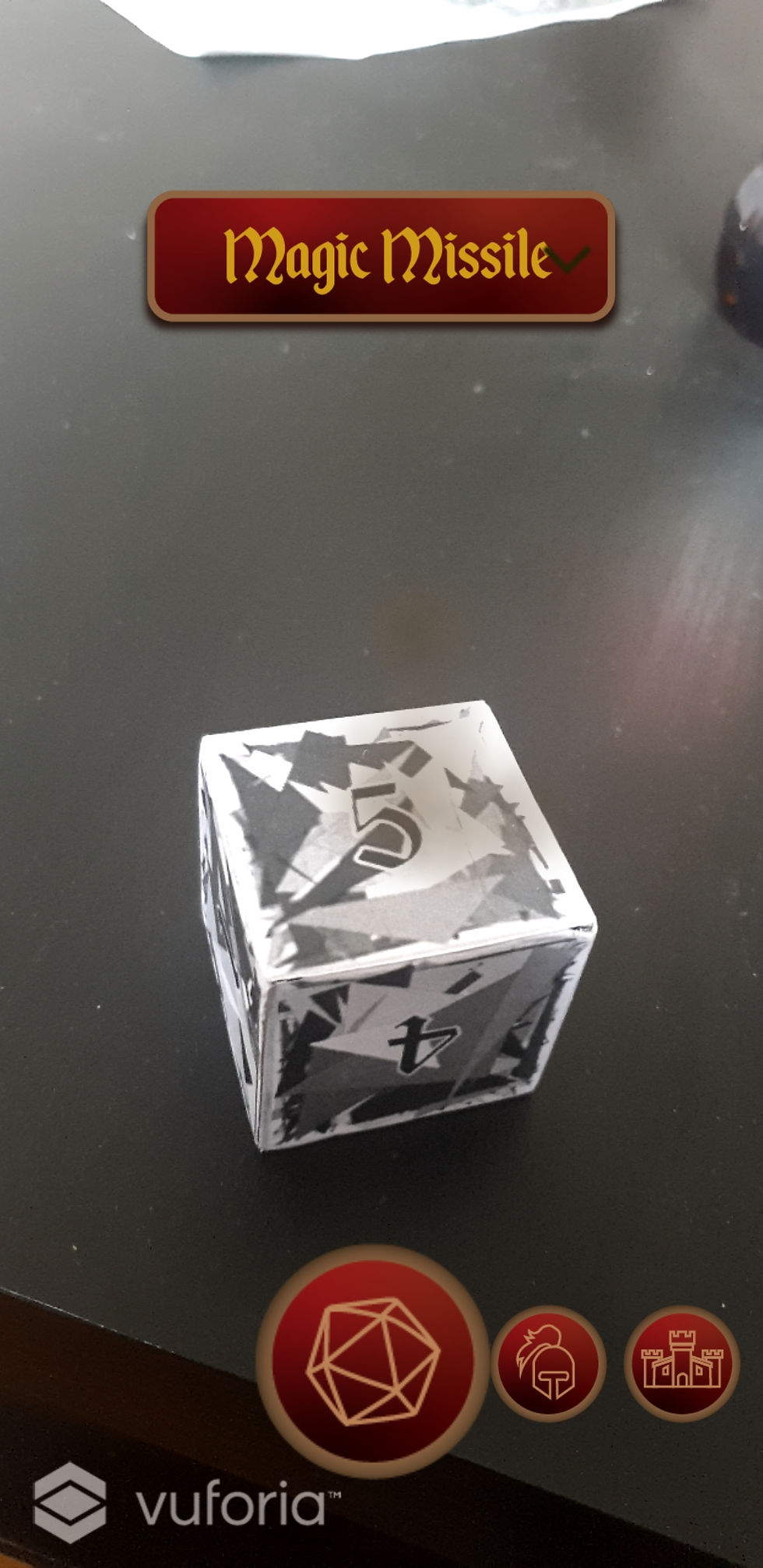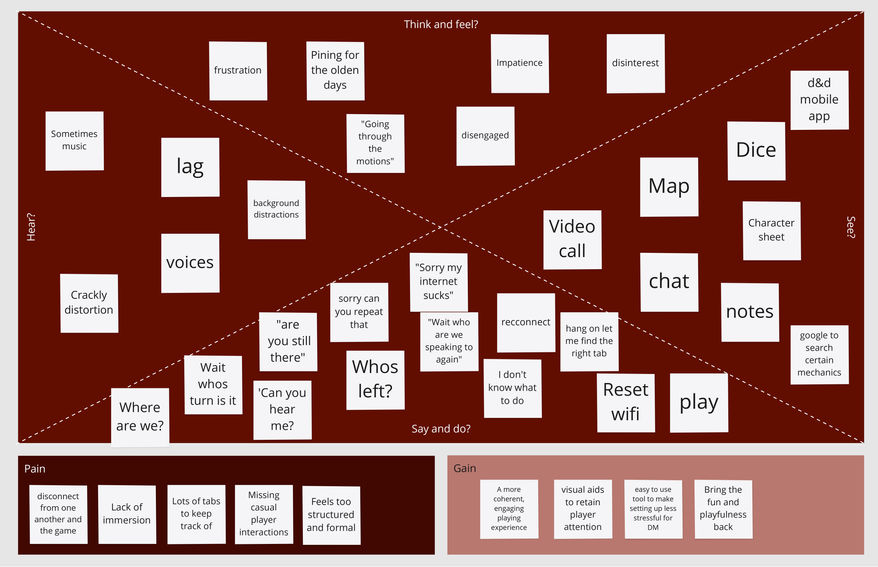ARDND
Dungeons & Dragons and Discord
My university honours project, focusing on researching the dungeons and dragons community to learn about the challenges of playing online and how mixed reality could present a potential solution.

Problem Statement: Exploring the use of mixed reality to help people stay connected over video call games
Role
UX Researcher, UX Designer, UI Designer, Software Developer (Individual Project)
Timeframe
7 months (4 months research, 3 months development)
Tools
Miro (Ideation + research), Adobe XD (Wireframe + Prototype), InVision (Prototyping), Unity with Vuforia and Photon (Software Development)
Research
Dungeons & Dragons is a tabletop role-play game where players collaborate together to build a world in which they explore and solve quests. Covid-19 has negatively affected everyone, limiting social contact to video calls, and I wanted to explore the specific impact of this on the dungeons and dragons community. By conducting research, and using design thinking, it was possible to present a potential solution to alleviate some player problems.
As a dungeons and dragons player, I used my contacts to arrange a focus group who could be contacted repeatedly throughout the development process. A qualitative approach was taken through focus groups and 'Participant as Observer' observational studies, as I played games with the group so we could talk about the challenges of online D&D games in an environment that highlighted them. This allowed more natural discussions as I could see pain points for myself first hand and discuss what they felt would alleviate there frustration.
Design
ARDND is a mobile app and dice. They work in tangent, with the dice functioning for gameplay and as a target for augmented reality. The app is split into 3 modes;
-
Rolling - for seeing the outcome of dice rolls such as probability checks, magical attacks and investigation rolls
-
Encounter - to show the characters the players meet be they friend or foe. This is particularly useful for combat or trying to determine wether to trust a character
-
Explore - as an open-world game there are a variety of maps and environments players can enter, so by providing a visual aid its possible to increase immersion and allow better gameplay tactics
ARDND was built using the Unity engine as a base, Vuforia for augmented reality, and Photon PUN to create networking to allow content to update for all players.












To develop this project, the area with the most iteration and development was actually the dice. Various models with different forms of markers where cycled through, as well as working with different mediums such as card and paper. As this project was build during lockdown I just had to work with the resources in my house, but I envision the real dice would be clear plastic (Or ideally a more sustainable material) with slots to insert paper fiducial markers.
The main redesigns with the app involved trying and failing to built my own video call platform or voice recognition system. With the time allocated and other commitments it wasn't possible to singlehandedly develop every desired feature, but I am happy with the version produced.




ARDND
Player vs Host Comparison
Results
The project proved extremely popular with the focus group, who could clearly see how their concerns had been listened to and converted into a fun solution. The dice proved popular as it integrated well with existing game mechanics without adding additional complications, and players were disappointed that due to covid they couldn't try the full experience themselves The projects success can also be measured by the fact it earned me a First Class Honours degree.
The prototype requires further iteration before being a marketable project. An idealised version would have a filterable database based on the player handbook to store all 3D Models and effects to make displaying content straightforward. It would also be envisioned voice recognition would be incorporated to trigger animations and displays based on voice commands to reduce manual user input.
While this project needs work to get to a desirable standard, it has been suggested by multiple interested parties the product should be brought to Kickstarter, so ARDND could eventually become a reality for tabletop role-play players everywhere.














